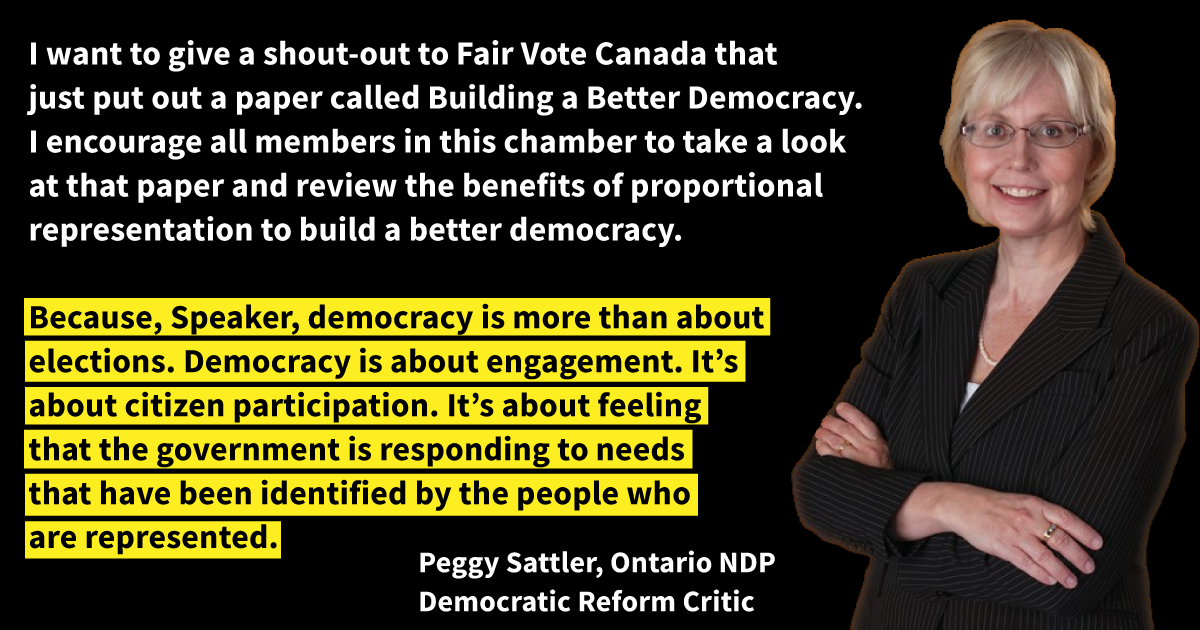On October 5, 2020, NDP Democratic Reform Critic Peggy Sattler spoke in the Ontario legislature about why strengthening with democracy with proportional representation matters. (8:00 in the video)
Peggy Sattler:
“The problem is not the date of the election; it is the electoral system within which this province operates. It is an electoral system that rewards governments that determine when they’re going to call an election based on when it’s to their political advantage. We saw that in New Brunswick with the recent election that was called, because that government, which actually had been doing a pretty good job—a much better job than this government, quite honestly, Speaker, in involving all members of the Legislative Assembly in decisions about how to respond to COVID-19. That government, as a minority government, had been doing that work. But it saw an electoral advantage. It saw an opportunity to translate its minority status to a majority government, and who can blame that government? That’s what first past the post means. It rewards that kind of decision-making. So that government was able then to elect a majority government, and now is able to unilaterally—just as we saw with this majority government—make decisions, moving forward for that province.
“So, Speaker, in my capacity as critic for democratic reform, I wanted to point out some of the advantages of moving away from first past the post and looking at a system of proportional representation as the most effective way to ensure that the problems associated with COVID-19, the risks to the people that we represent, can be dealt with in a much more collaborative way, a way that involves the ideas of all members who are elected to represent the voices of our constituents.
“There’s research that’s been done: Countries that have systems of proportional representation have been much more effective in their response to COVID-19. They have experienced fewer deaths, fewer hospitalizations, fewer people on ventilators. All of this is well-documented in the research. That is because those countries operate in a system of negotiation, of compromise, of hearing from different sides of the table so that they can make good decisions that actually respond to the priorities and the needs of all of the people of this province.
“I also just do want to give a shout-out to Fair Vote Canada that just recently put out a paper called Building a Better Democracy. I encourage all members in this chamber to take a look at that paper and review the benefits of proportional representation to build a better democracy. Because, Speaker, democracy is more than about elections. Democracy is about engagement. It’s about citizen participation. It’s about feeling that the government is responding to needs that have been identified by the people who are represented.
“Leger just recently did a poll. They asked Canadians questions about democracy: What do they care about in democracy? Some 97% of Canadians who responded to that poll said they want a system that encourages parties to work together more in the public interest. They want a system that encourages elected members to work on longer-term solutions to problems, rather than quick fixes.”

